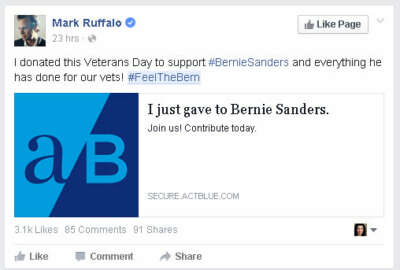

Federal employees can usually discuss, reference or display Black Lives Matter slogans at work without violating the Hatch Act, the Office of Special Counsel said...
Federal employees who discuss, display or reference Black Lives Matter in the workplace — in most circumstances — won’t collect a Hatch Act violation, the Office of Special Counsel said this week.
Following several recent questions from federal employees about Black Lives Matter and the Hatch Act, OSC issued new guidance on the topic to agencies late last week.
OSC provided a brief clarification and reissued the advisory Tuesday, reminding federal employees that its guidance on Black Lives Matter only covered implications for the Hatch Act, not any other rules, regulations or laws. Those questions should go to an agency ethics official, OSC said.
Under the Hatch Act, civil servants generally can’t express support or opposition for a political party or candidate if they are on duty or at the federal workplace.
In issuing this new guidance, OSC considered whether BLM is an inherently political activity and whether the Black Lives Matter Global Network (BLMGN) and other associated organizations are politically partisan groups.
On both accounts, OSC determined BLM and its associated organizations are not political entities.
“BLM is … an umbrella term for a constellation of ideas, objectives and groups,” OSC said. “There is no ‘leader’ of the BLM movement. Rather, there are numerous organizations that use BLM terminology to varying degrees, including some whose names include the phrase ‘Black Lives Matter.'”
Using the Black Lives Matter phrase in an email signature, for example, shouldn’t raise questions about a Hatch Act violation, OSC said. Using such phrase is different from displaying “Make America Great Again” in the federal workplace, OSC said, because the latter is a campaign slogan for a political figure running for office.
OSC made a similar determination several years ago about the Tea Party, concluding the phrase only evoked social and policy issues and not political concerns.
“To the extent that either movement’s motivating principles can be definitively established, it appears that they both were or are focused primarily on raising awareness of, and achieving policy changes for, their issues of concern,” OSC said of BLM and the Tea Party. “Thus, expressing support for or opposition to BLM as a movement is not ‘activity directed toward the success or failure of a political party, partisan political group, or candidate for partisan political office.’ Such expressions are therefore allowed by the Hatch Act.”
In addition, the BLM Global Network has not endorsed a particular political party or candidate and is instead focused on voter registration and racial injustice, police brutality and other issues, OSC said.
The agency has found no evidence to suggest BLMGN is affiliated with a specific political party or candidate — or that it has organized in support or opposition of a particular political group.
“The Hatch Act does not prohibit employees from engaging in issue-based advocacy, such as activity in relation to an issue not specifically identified with a political party or partisan political group,” OSC said. “Because using BLM terminology is not inherently political activity, and because BLMGN is not a partisan political group, the Hatch Act has only limited application to BLM-related activity.”
To the extent that the BLMGN is involved in the upcoming presidential elections, the group is focused on voter registration and education, OSC said.
Like Planned Parenthood or the National Rifle Association, OSC acknowledged BLMGN is often associated with one political party over another.
“But that does not make it a ‘partisan political group’ for purposes of the Hatch Act,” OSC said. “Considering that BLMGN is overwhelmingly focused on policy issues, not on promoting or opposing political parties or candidates for partisan political office, it is not a partisan political group at this time.”
Though expressing support or opposition for Black Lives Matter isn’t an inherent Hatch Act violation, there are a few circumstances where a federal employee’s words or actions may raise concern.
A federal employee can’t, for example, advertise or invite others to a BLMGN-hosted fundraiser for a particular political party or candidate while on duty.
Inviting coworkers to a fundraiser that solely benefits Black Lives Matter, however, is OK, OSC said.
OSC has offered up several previous opinions on the Hatch Act to federal employees. It reminded employees earlier this year of their responsibilities to comply with the law while working remotely and using web and video conference platforms during the pandemic.
Copyright © 2025 Federal News Network. All rights reserved. This website is not intended for users located within the European Economic Area.
Nicole Ogrysko is a reporter for Federal News Network focusing on the federal workforce and federal pay and benefits.
Follow @nogryskoWFED



